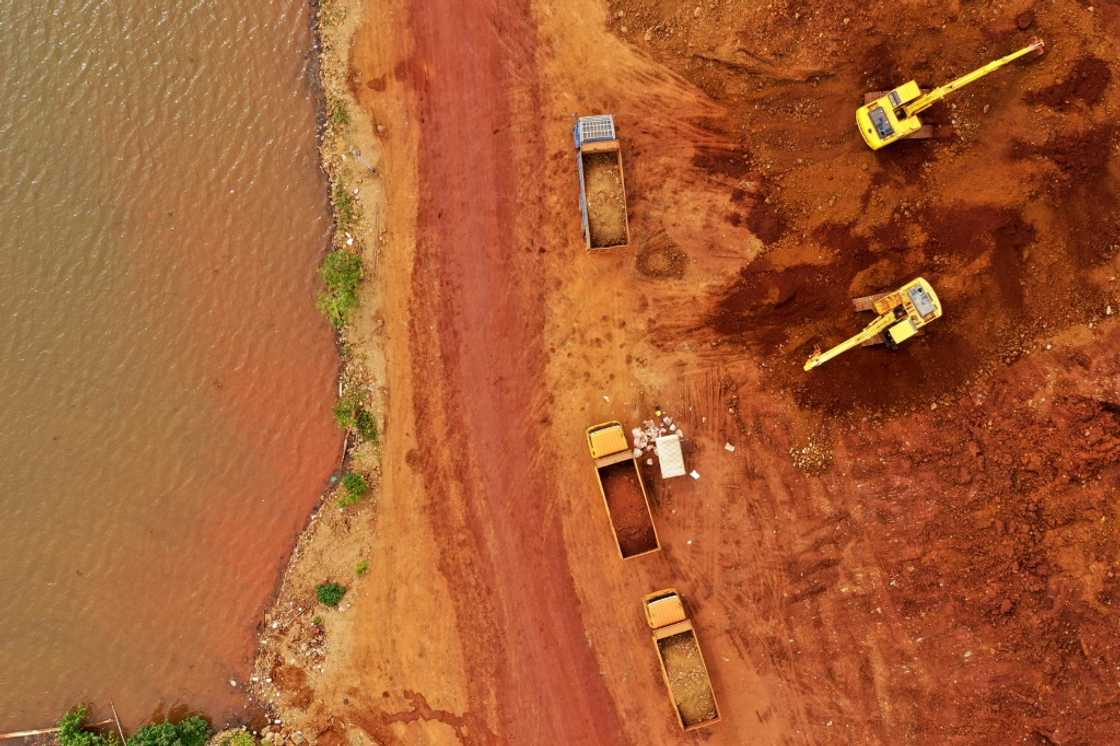NGO accuses Chinese renewables firms of abuses in 18 countries

Source: AFP
PAY ATTENTION: Enjoy reading our stories? Join YEN.com.gh's Telegram channel for more!
Chinese companies investing in minerals used in the renewable energy industry have been accused of more than 100 human rights and environmental abuses around the world since 2021, according to a report released on Thursday.
China dominates the processing and refining of minerals critical to the transition to renewables -- including copper, nickel and cobalt -- and has poured investment into facilities in resource-rich countries such as Indonesia, Peru and the Democratic Republic of Congo.
The Business & Human Rights Resource Centre, an international NGO, logged 102 alleged cases of abuse committed by Chinese firms involved in sourcing transitional minerals overseas between January 2021 and December 2022. More than a quarter allegedly took place in Indonesia.
"Our data shows human rights and environmental abuse is prevalent in the exploration, extraction and processing of transition minerals," a spokesperson for the NGO said.
"Local communities are bearing the brunt of these abuses."
Of the total alleged cases of abuse across 18 countries by Chinese firms, the NGO found 27 in Indonesia, 16 in Peru, 12 in DRC, 11 in Myanmar and seven in Zimbabwe.
PAY ATTENTION: Follow us on Instagram - get the most important news directly in your favourite app!
China has been blamed for environmental damage and poor workers' rights in Indonesia, where electric battery-producing companies hungry for nickel have worsened pollution and stoked tensions over sub-par working conditions at their facilities.
The Chinese government has pledged to not build any more coal-burning plants abroad, but the NGO said its green pledges have been "overshadowed by the serious human rights risks associated with their overseas business operations".
More than two-thirds of the total allegations involved rights abuses against local communities and over half involved harmful environmental impacts including water pollution, effects on wildlife and preventing access to water, the report said.
More than a third were allegations of harming workers' rights.
The accusations concerned 39 Chinese companies, of which only seven have published human rights policies, according to the report.
With the global use of these minerals anticipated to rise six-fold by 2040 as the demand for renewables grows, the NGO called on China and the governments that welcome its companies to take "urgent action" to mitigate the harm caused in the transition.
"Given their vital role in energy sectors globally, Chinese actors are well placed to lead a responsible energy transition," its spokesperson said.
"However, this can only be achieved if Chinese businesses and regulators take proactive measures to address endemic human rights and environmental abuses."
New feature: Сheck out news that is picked for YOU ➡️ click on “Recommended for you” and enjoy!
Source: AFP



